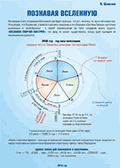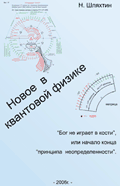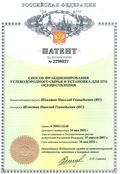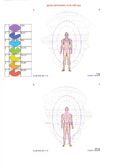If Einstein, the greatest scientist of 20-th century, having been created the general and special theories of relativity, having received the Nobel Prize for the contribution in the quantum theory creation, would have today an opportunity to observe what is going on with his scientific heritage, the way of how his concept is interpreted on the top of the highest Olympus science, he would be mildly speaking very much surprised.
With trying «to push through» into all spheres of the physical science the Heisenberg’s «uncertainty principle» (the approach of 20-th years, 19-th century, which had replaced the Newton’s mechanic on the quantum one), an attempt to transform the Einstein’s classical general theory of relativity in the quantum theory of gravitation, i.e., creation of the quantum theory of gravitation into which the «uncertainty principle» will be introduced, is not ceased.
To the question: «What should it be done for? — in fact, all experiments to the present moment confirm the general theory of relativity!» — We can hear the answer: «The reason, we still have not noticed any differences between the theory and observations, consists in the following: the gravitational fields which we usually know are very weak».
Such the conclusion could be formed only from the «laziness» of mind or «very weak» attempts to change or improve though something, relying on the knowledge which mankind has accumulated.
Listen what they say: «… For a while we can accept that a certain set of laws completely predetermining events for a certain supernatural essence (here, probably, they have in mind the God, the author’s comment) which is capable, in contrast to us, to observe existing state of the Universe without disturbing it. However, such models of the Universe do not represent the great interest for us, ordinary mortal men».
And further they declare: «… It is reasonable to use a so-called principle of the «Occam’s razor» and to cutoff all theory elements which have no evident demonstrations».
Well, my dear reader, «to cutoff”! As a result, we observe the «cutoff” of the theory which these sirs then offer to us. Well, it is a kind of an interesting approach, but hardly acceptable, I am sure, for many and many scientists.
Everyone has the right for its proper vision of the World, it is related to everyone of us, an ordinary reader. But people engaged with the science on the professional level, besides this right, are necessary to have a responsibility, while bearing their proper ideology for the public opinion, especially when the reference is fulfilled for «… the majority of scientists».
Of course, for today the reason of all troubles in the physical science consists in absence of the theory, developed and accepted by the scientific community, which unambiguously could show the possibility with greater accuracy not only to predict but also to count energy, frequency, temperature of any microparticle in any place.
I would even say so: Available theories of such level, having place to be both in Russia and abroad, «have not yet paved the way».
New theories are hardly settled down on the Olympus of the science, but the old ones disappear even more hardly and painfully.
It may seem, but the fact is for the last twenty years there are no any attempts in the physical science to study and establish interrelation between the atoms of hydrogen (11Н) and helium (42Нe), no to mention the interrelation of other atoms of the periodic table, to calculate the nucleus energy balance of an atom, an electron, a neutrino. Up to now their values obtained by experimental methods are used.
Neither in manuals nor in scientific works you cannot see a clear definition what is «proton», «neutron», «electron», «positron», «neutrino». Accordingly, there are no answers to the questions «How are they connected between each other?», «In what frequency limits and temperatures do they exist?», «What is the modification regularity of their energy potential?».
Certainly, there will not be any progress in such physical vacuum (from the point of view of physics knowledge level). And to explain the microcosm and macrocosm is practically impossible. New time requires new, more modernized approaches in explanation of the processes occurring in our Universe and around us. And the science, instead of «to strain the crinkles», shakes «a dusty bag» and gets out the «uncertainty principle» from it.
I am absolutely sure, the Heisenberg’s «uncertainty principle» and Schrцdinger’s «psy-functions», having been played the positive role in the past, are now the obstacle in a further development, both for quantum physics and for explanation questions of the World creation and formation.
In fact to the present moment such areas of the physical science as gravitation, large-scale structure of the Universe cannot be explained from the point of view of the «uncertainty principle».
The Einstein’s general theory of relativity does not consider the quantum-mechanical uncertainty principle.
Einstein was thrice right, objecting to the quantum mechanics which have introduced an element of uncertainty and accident in the science. Einstein persistently objected to it. He had never accepted the Universe was managed by a Case and his words: «the God does not play with bones» are prophetical.
Discussions of individual scientists on the World creation and formation, in which the basis of «uncertainty principle» is put, have brought scientists so far from the truth that their conclusions, mildly speaking, can be called as doubtful.
Read popular enough, as authors by themselves mark, the book «A Briefer History of Time» from cover to cover (authors Stephen Hawking and Leonard Mlodinow, the first -known astrophysicist in the world of science, the second is the co-author, popularizer of science) and you will see up to what level of «understanding» the scientists came.
I will quote only three extracts from the final chapter of this book.
1. “… if the Universe is completely independent, and has no singularity or boundaries and can be described all by the incorporated theory, it makes to radically reconsider the role of the God as the Creator».
Under the «incorporated theory» is meant the theory, in which during many years (even decades) the physical science tries to make the «uncertainty principle» fundamental characteristics of the Universe where we live in (the author’s comment). What is the answer to it?
— Dear sirs, the Universe where we live in, will be described by the «unified» theory, but in this theory there is no place for the «uncertainty principle».
— In fact, the Universe has the singularity and boundaries!
— The Universe is not independent. It lives and develops under the laws of the «Cosmic Mind» (cosmic laws) which you cannot «reach» because of the «uncertainty principle».
— It is not necessary for you, and there is no need to reconsider «the role of the God as the Creator». To you it is simply not allowed. Indeed, if you cannot reach up to the «Cosmic Mind» even in its definition, then, you should not try to reach up to the «Superior Mind» as the God and the Creator.
But at least, do make the conclusion of what you declare: «… to reconsider the role of the God as the Creator». The clever and thinking person, obviously feeling itself in the realities of the World today, simply note reading these words that you are ignoramuses. But in fact in readership there are a lot of unprepared but curious minds accepting information and trusting you, who wrote this, because you are a well-known astrophysicist generally recognized in the World of science. What is going on? You speak there is no God. It is ok, although it is a pity if you made this conclusion only for you, but you are trying to impose this ideology on others.
And what about the «restless» Islamic world today, religious foundations with centuries-old even thousand-year ways of life in other countries? And what will you provide them instead of the human faith crushed by you? May be your «uncertainty principle»?!
If the concept: «the God is Creator» sickens you, just call it the «Superior Mind», there are also lot of atheists among the readers. At least think about it, as the role and significance of the God — the Creator (the Superior Mind) will not be reconsidered all over the World, while there is a common sense among the people. And explanations to such phenomena as the Absolute, the Consciousness, the Cosmic Mind and the Superior Mind already exist for a long time but the Western science stands up against its acceptance.
In general, as I understand, to give explanations concerning the World is the lot of philosophers, or philosophers together with physicists and representatives of other directions in science. But the things are not to reach for the explanations because of the following reason. As we used to speak: «Do not put blame on your neighbor, but look at yourself”.
For your better understanding, my dear reader, I will quote one more extract from the final chapter of the book:
2. “… Until now the majority of scientists have been too much engaged with creation of new theories describing what is the Universe in order to ask a question what for». On the other hand, people whose work is to ask what for, philosophers, could not keep up with progress of naturalistic and scientific doctrines. In the 18-th century philosophers considered all human knowledge, including natural sciences, as area of their forces applying and discussed such questions as: whether the Universe had a beginning. However in the 19-th and 20-th centuries natural sciences have too closely mixed with technics and mathematics in order to remain popular for philosophers or somebody else, except for few specialists. Philosophers have reduced their sphere of claims so, that Wittgenstein, the most known thinker of the 20-th century, has told: «the unique problem, remained for philosophy, is the language analysis». What decay after the great philosophy tradition from Aristotle up to Kant!»
Believe, the dear reader, a fever penetrates from such ignorant attitude of authors of the book to philosophers, and, as a whole, representatives of one science to other scientists. And in fact philosopher Wittgenstein, unfortunately, is right, but not that «Aristotles» and «Kants» «have degenerated» among philosophers as it is emphasized by the book authors and that the physical science, in particular, does not give them, philosophers, any food for thought. And really, will the philosopher respecting himself relate seriously to the so-called progress of natural sciences mixed with technics and mathematics if it is simply «soap bubbles» in the form of the Heisenberg’s «uncertainty principle» and Schrцdinger’s «psy-functions»?
Aforesaid words do not mean at all that the quantum theory is incorrect in principle. Moreover, even these components of the quantum physics: both the «uncertainty principle» and «psy-functions» were necessary at the certain stage to fill «vacuum of misunderstanding» in the quantum physics. Unfortunately, this «vacuum of misunderstanding» was cultivated for so long and continues to be cultivated among students, post-graduate students, scientists, that the «vacuum» began to be shown in our heads, in our consciousness. Here one more (the last) extract from the book:
3. «.“ … In essence, we have already reconsidered the task of the science: this is the opening of laws, which will allow us to predict events in the boundaries set by the uncertainty principle».
Well, dear reader, neither more nor less they (and it would be desirable to know them by name) have reconsidered the task of the science. What is it? Is it the «Black period» in the science or do these people really not understand, what they do? In any case, I think, they act hastily. If you, sirs, just a little see «the role of the science» in it, it is not worth a pin to such the science. And you will be «blaming» for a long time philosophers of the 21-st century, that they «… nobody else, except for few specialists» do not understand your science.
How to explain these sirs, that they not only themselves but even others lead to «nowhere». Take any, I emphasize, any manual «The course of the general physics» and open the chapters: «The Nuclear physics» and «Physics of the atomic nucleus and elementary particles». You will read in the part: the «uncertainty principle»:
— «… If an electron falls into a point nucleus, his coordinates and impulse would accept certain (zero) values, it is not compatible with the «uncertainty principle».
In section «Radio-activity» beta-decay is explained as follows:
— «… There are three existent beta-decay varieties. In one case the nucleus undergoing transformation emits an electron, in another one — a positron, in the third case named as electronic capture (е — capture), the nucleus absorbs one electron».
I do not know whether it is by chance or not but these two parts the «uncertainty principle» and «Radio-activity», as a rule, in all manuals are dispersed, one in the beginning, another one in the end. Cannot it be really visible these two parts «are not gathered»? How correctly to interpret this writing in these parts by the same philosophers? Sure, an electron «does not fall» onto the nucleus it is a practice, but an electron «is absorbed» by the nucleus it is also a practice.
But if an electron can be absorbed and emitted by the nucleus, it is (adjoins) at any moment in the same coordinates with the nucleus. In fact it is a quite sensible conclusion. The fact that Beta-decay occurs how is described in the manual is irrefutable during decades and daily proves to be true in practice. It became the axiom for physicists already for a long time with including those ones who «… have already reconsidered the task of the science … ” .
And what can we do with the «uncertainty principle» which says that «… if an electron falls onto the point nucleus….. it is incompatible with the uncertainty principle»? Under the theory of Beta-decay and from practice, an electron not only falls (absorbed by the nucleus) but also is emitted by the nucleus (here the concept «separation» from the nucleus suits more).
So must we do? To continue repeating this «physical mantra» (the uncertainty principle) and «to trample down»? Or is it time to reconsider something? I think it is time to put the end to the «uncertainty principle» and to write: «If an electron can have the common coordinates with the nucleus, it means that the uncertainty principle cannot be not applied in the World explanation (both the microcosm and macrocosm)».
And then, dear sirs — scientists, it is necessary to think seriously whether it is worth to waste time «… to open laws which will allow us to predict events in the boundaries set in the uncertainty principles». For all of us it is time to turn to the real science — to knowledge sources. In fact it is not casual that gravitation and large-scale structure of the Universe do not consider quantum-mechanical uncertainty principle up to now. «The God does not play with bones» — if not all but the majority of scientists really understand these Einstein’s words which became classics.
Believe, sirs, while we shall not establish the order in our heads there will not be the order in our house, and let everyone understand this in his own way. For someone the «house» is an apartment, a cottage, for someone — his country and for someone — the whole Planet, the whole World. Scientists differ from each other in this attitude to their «house». In our country there is a lot of widely thinking scientists, whose theoretical and practical works can be «go-ahead» in the scientific world. Frequently their works in different spheres of sciences far advance results of works of other countries scientists in the similar directions. But there is no «coming out», confirmation and recognition of these works at the world level, at least during the last decade.
We can only regret that for today the fine works of our scientists such as G.I.Shipov and A.E.Akimov («The Theory of physical vacuum») do not find the broad encouragement and discussion. Results of works of outstanding Soviet scientists have disappeared «in anywhere» — V.A.Lubimov, E.G.Novikov, V.Z.Nozik, E.F.Tretjakov, V.S.Kozik have made experiments still in 1975 — 1980 years as a result of which they have come to the conclusion that «… the rest mass of a neutrino is non¬zero and, possibly, is within the limits from 15 to 44 (electronvolt), and, most likely, makes 35 (electronvolt)
For that moment, in 80-th years, many scientists noted that if results of these experiences proved to be true, it would necessary to make essential amendments to the existing picture of both the microcosm (i.e. the world of elementary particles) and especially macrocosm (i.e. the Universe).
And in fact their results of measurings of the neutrino rest mass, could say, are ideally true. The calculations through matrices show that the neutrino rest mass in the matrix «242 Ч 242» (for the hydrogen group) makes 16.07472 (electronvolt) and in the matrix «121 Ч 121» (for the atom of helium) -34.9279 (electronvolt).
Compare with their conclusions: «… from 15 to 44 (electronvolt), and, most likely, 35 (electronvolt) …». And if those scientists got encouragement and recognition of their works in 80-th years, the question on the further application of the «uncertainty principle» would be solved at that period. And today we would already have more serious works and the better understanding of the structure of the microcosm and macrocosm.
But we are glad that today the potential of scientists in our country and abroad is so great that the feeling, that we are really on a threshold of a «Great» discovery, wanders around us. It seems to me that it is lack of «a little»: mutual understanding, trust and respect among scientists — and these are components of dialogue.
I cannot say what is worse. Is it a published work of a scientist which even has received a negative response, or the same work but hidden under a bushel? All the scientists without exception are to begin with this question and to search its answer. The answer of this question gives the understanding «for the sake of what?» and «how?». If many scientists have already an answer of the question «for the sake of what?», not everyone can answer the question «how?». And the reason of it — to make sciences bureaucratic, a fear to lose the image, criteria of graduating and retaining of an academic degree, a post — these are components of qualities not promoting the prosperity of the science. Therefore the question: «to publish?» or «to hide under a bushel?» has no a scientific unequivocal answer from the point of view of common sense of a concrete person — scientist.
But we should thank the scientists who publish their works and are opened to dialogue. Should thank for their boldness, civil position. Such people setting out their vision, their understanding of the world, are the locomotive exciting the scientific environment, they promote the mankind progress along steps of its development.
Even if I and maybe someone with me do not share Stephen Hawking’s credo today, we should understand that this book and its author have given us the food for thought. Likely, this book will move many scientists not indifferent to events happening in the World to self-expression, search and reflections.
Nikolay Shlyakhtin





